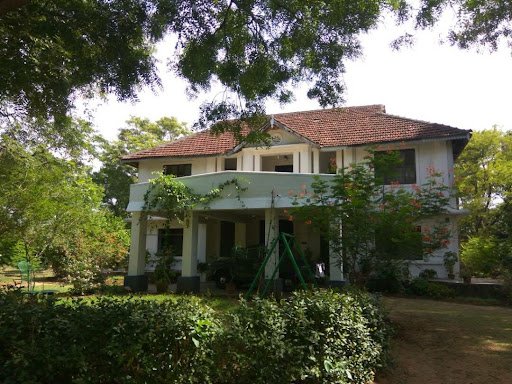In My Humble Opinion
Am I Malayali Enough?
Sept. 2023/written by Samyukta
Language in its linguistic sense is a certain combination of sounds given meanings, encapsulated as words; these words are a combination of sounds ascribed various meanings within a society. Languages in a society are a means of communication for the purpose of survival and cultural discourse. Therefore, can language be considered as a part of our identity? This is a question I seek to explore, especially since it is one of personal significance to me.
In terms of my identity- First, I was born in India, so I am an Indian. Second, my ancestry hails from the state of Kerala - my parents and their forefathers are from Kerala, and so I am also a Malayali. Even though I was born in Chennai, Kerala is my second home.
Even before my brother and I could crawl, our parents took us in tow on annual visits to Kerala to visit our hometown, Kollengode. During our schooling years, we spent all of our summers there, and sometimes we were even able to squeeze in a Christmas visit. Our doting grandmother would always be there with her arms wide open to accept us in a loving embrace, which was in turn the warm embrace of our homeland and its culture.
Image Description: Family home in Kollengode, Kerala
There, Kerala and its richness surrounded us and became a part of us: its clothing, which we were promptly draped with, complete with with the sacred thread around our chubby waists; trinkets and old heirlooms; a staple diet of traditional food; the classical architecture of our big Kerala house; customs, practices, and rituals; recountings of forefathers, their lineages and upbringing.
Our connection to the biodiversity and soil of Kerala also came through our grandmother. As babies, our parents teased the soles of our feet with the texture of the soil and grass. When we grew a little older, our grandmother began sharing the joys of her own connection with the earth. She loved gardening; in the front yard was a garden carefully planned around towering trees, where she also raised vegetables and fruits. And in the backyard, she allowed a sprawling forest of local trees and plants to thrive freely as a refuge for indigenous species whose lives were endangered by deforestation in the distant hills. She pointed all of these out, giving us their names in Malayalam, and oversaw us dotingly as we interacted with the ecosystem with our bare hands, digging for earthworms, hunting for frogs and bugs, and sharing our excitement as we looked out for creatures like civet cats, snakes, wild boar, and more.
And beyond our compound, we were surrounded by a pastoral scene flanked by the looming Western Ghats – the Kollengode village connected to the small town of Palakkad. This was the grassroots level of Kerala society governed locally by the Panchayat.
My grandparents moved to Chennai for a brief period in their youth to pursue their livelihoods and raise their children. The language Malayalam, as a consequence of an ongoing adaptation to a new culture was eventually forgotten by their children. Even now, only vestiges of the language remain in my mother’s spoken vocabulary, despite having been able to speak it fluently in her childhood, and nothing at all was retained by my father. The only Malayalam my brother and I heard was during our annual visits. This was enough for us to gain a limited comprehension of spoken Malayalam, but not enough for us to learn how to speak. And yet, even this vestigial contact with the language has its impression on our consciousness.
Hearing its lilt and intonation hits with the familiarity of its origin - a certain house lively with conversation, a town filled with the buzz of one language in the air, and the sweet nothings in Malayalam uttered by our mother which would fill our ears and lull us to sleep.
In the innocence of my childhood, I never thought to question or second-guess this identity in which language had not taken a strong conscious root. But as life carried on, the accumulation of certain experiences propelled a seed of doubt into my heart, and a question sprang up within me which had never been there before
"Was I Malayali enough?"
Growing up in Chennai, my brother and I were the third generation of Malayali settlers in our family. I have always felt uncomfortable with the question “What is your mother tongue?” because it is invariably followed by two outcomes: either a hopeful fellow Malayali tries to spark up a conversation in Malayalam and I have to let them down gently, or I get asked the question “What language do you speak at home?”, to which their incredulous reply to my response is “You speak English at home?!” There was also a brief period in my undergrad when I was jokingly called a ‘fake’ Malayali because I didn’t speak the language, and yet people who were not Malayalis but who knew Malayalam were still considered more ‘Malayali’ than me.
In this sense, language offers us a tool of belonging. When people speak the same language, they have similar frames of reference; meaning is conveyed uniquely through the words in their language, and is understood in its intended context. These languages can translate very differently, and words might lose their impact in translation. This is especially noticeable in a multicultural, diverse nation like India, with 22 official languages and hundreds of dialects. All Indians belong to the same nation, yet each society can be completely different. It is easy to feel lost and alone in another state, so it is normal for people to seek out their own linguistic community to rely on for support.
However, this inclusion into same-region groups is contingent upon knowing the language. I recall my brother telling us about his experience in undergrad in Bangalore- a Malayali classmate struck up a conversation with him and asked him where he was from. When my brother replied that he was from Kerala, his classmate got very excited and started speaking to him in Malayalam, and my brother had to interject and tell him that he didn’t know Malayalam. But when he told him this, his classmate seemed to deflate and lose interest in the conversation, and my brother was bemused to discover later that there was a huge community of Malayali students who exclusively hung out with Malayalis and spoke only Malayalam.
I have also heard of certain instances in Chennai where junior university professors in Malayali-run institutions were excluded by the older faculty until they learnt Malayalam and could converse with them, and that Malayali students were perceived more favorably than others.
Language-based discrimination and exclusion is not exclusive to educational institutions. Linguistic hegemony is a prominent point of conflict and resentment among the States. The South Indian states have had a rocky relationship with the North-based political parties forming the Central Government (think the Federal Government of the US), who have a history of pushing propaganda to make Hindi the official language of India.
First, a little bit of background:
The Constitution of India recognises 22 regional languages for official purposes by their respective states, of which Hindi may be an option if they so desire it. In this way, Hindi has become the official language of 9 out of 22 states, and is spoken by approximately 40% of the population.
In addition to this, English and Hindi are the languages used for official purposes by the Central Government, and English is the official language of the Indian Supreme Court- this is for practical purposes as its members come from different States.
The Indian Constitution stipulates that all laws in India are meant to be written exclusively in English.
The unification aspect of English language usage was recognised by the makers of the Indian constitution. However, the Central Government, led by the BJP (the Bharatiya Janata Party, a heavily right-wing Hindu Nationalist party) seeks to repeal 3 colonial-era bills written in English, and replace them with bills named in Hindi.
President of the DMK political party, and Chief Minister of Tamil Nadu, M K Stalin, puts it across in a nutshell: “Recolonisation in the name of Decolonisation! The audacious attempt by the Union BJP Government to tamper with the essence of India’s diversity through a sweeping overhaul – Bharatiya Nyaya Sanhita, Bharatiya Nagarik Suraksha Sanhita, and Bharatiya Sakshya – reeks of linguistic imperialism.”
Reformation of ancient colonial era laws is no doubt a welcome change. However, the tragedy is that it should come shackled in the chains of linguistic hegemony. The oldest spoken language of India, and one of the oldest spoken languages in the world is Tamil. It is the official language of the state of Tamil Nadu. To give you a sense of scale: Tamil is the oldest language in India (roughly 5000 years old, originating approx 450 BCE), older than Hindi which is a comparatively new language (originating between the 7th and 13th century). To rename a bill in Hindi, instead of the ‘neutral’ language, English, is a monumental statement to the perceived ‘superiority’ of one language. It is akin to the erasure of one of the oldest ethno-linguistic identities in the world. I'd like to top it off with a final quote from Stalin: “It is India, not Hindia.”
In the middle of these double-sided linguistic conflicts, these are those of us without the language of our homelands occupying a unique third space.
When it comes to having a sense of belonging, I am one of the many second or third generation of settlers in another state who have not retained my mother tongue, but still have a sense of belonging with my home soil. And it's not just children of migrants like me who could feel this way; people with other kinds of circumstances also occupy this third space – orphans, adopted children, those who are deaf or mute and thus can’t speak the language – none of them are disqualified from their identity.
No matter our circumstances, we have an affinity towards our homeland which is beyond any logical reason. You could call it a sense of homecoming, a deep familiarity, a coming together, or an alignment.
Language can be a part of our identity, but it isn't everything. Our sense of belonging with our homeland is deeply personal, and is something only we can determine; belonging has no conditions.



